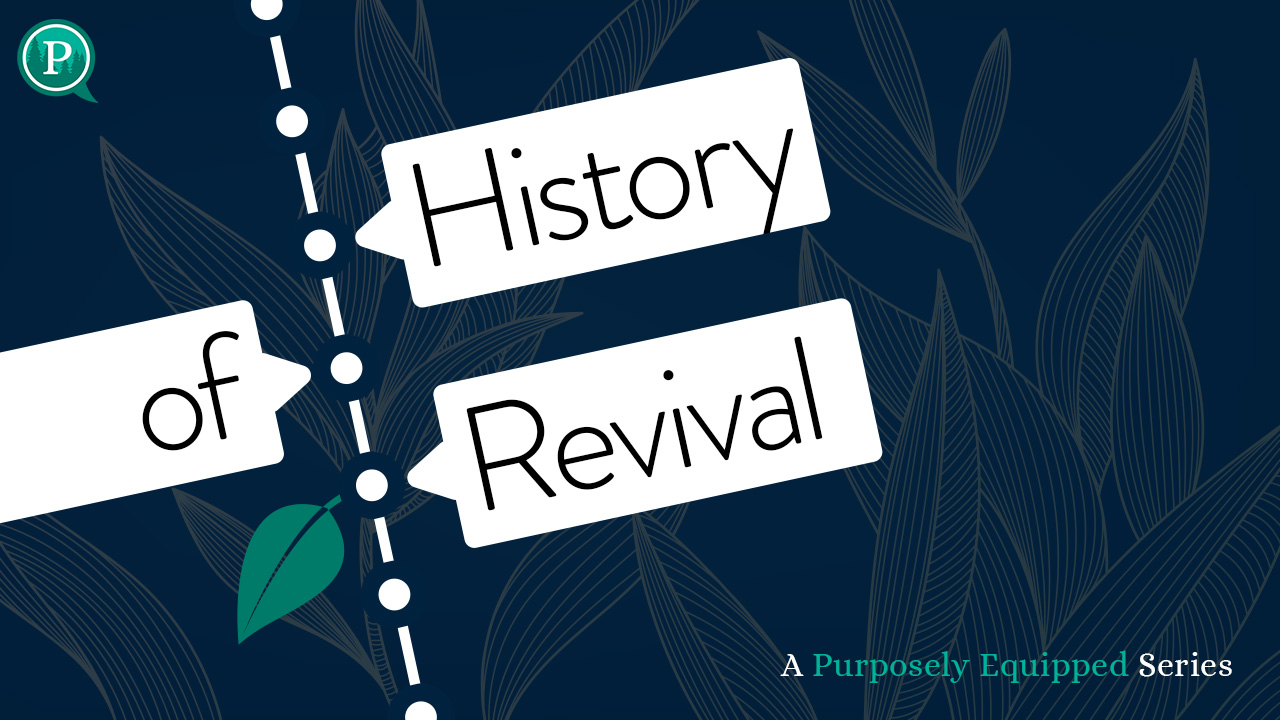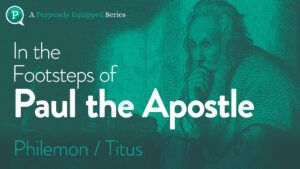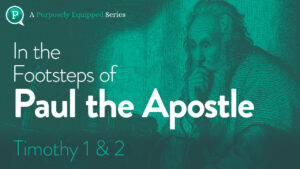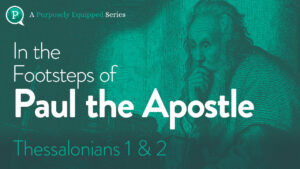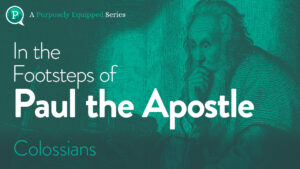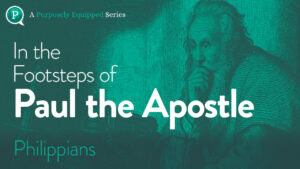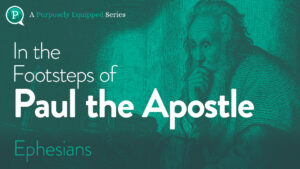Pastor Alec Rowlands discusses the history of revival, focusing on the Second Great Awakening and its impact on society, in Part 2 of A History of Revival.
Show Notes:
Book: England Before and After Wesley: The Evangelical Revival and Social Reform
Transcription:
Mark Holland:
And now part two of a history of revival featuring Pastor Alec Rowlands of Westgate Chapel in Edmonds. In part one, we left off with the first great awakening and now moving on to what is known as the Second Great Awakening. Yeah. Again, getting back to the church, church needs to change first and foremost, and then the society can change after it. Okay. So the founding of America very much was the fruit of the first awakening. Then we come to something called the Second Great Awakening. Now, what happened during this time and when was this problem?
Alec Rowland:
Well, life happens. My friend Richard Owen Roberts, who is a scholar and librarian of revival in Wheaton, Illinois, says that he actually believes that God never intends us to live in that fever pitch of revival because it is a fever pitch. It becomes a 24/7. And so, he feels that God’s intention for revival is to significantly raise the spiritual temperature of the “capital C” Church in a region or a nation and that temperature, and then it doesn’t stay at that fever pitch, but it remains at a higher level water level, if you will, than significantly than it was before. And then over years, and this is not God’s intention, but over years, people’s passion for the Lord start to wane. The third generation out of a revival doesn’t value the things that brought the revival about, like intercession and fasting and prayer. And so, in the third and fourth generation, the effects of the revival start to wane until the church eventually grows cold and indifferent and is in need of another awakening.
And then a few isolated folks get desperate about the circumstances, begin to initiate a call to prayer. They talk, they have a vision of what could be based on what God has done in previous revivals, and they begin to call for prayer. And it’s slow in getting started, but eventually there’s gaining momentum in intercession. And the heart of God is inclined to, because he’s, it’s not that he’s waiting on us, but he’s always chosen to partner with us. So he is waiting in a sense, he could move arbitrarily. He can do, he’s sovereign, he can do whatever he wants to do, but as if he gets more glory when he gets to partner with us. And so he waits for our hearts to get to that place of desperation. We begin to call on him with expectancy in our hearts, based on what we’ve read in previous or heard in previous revival accounts. And then it begins to move.
Mark Holland:
So is that what was happening then in the mid 18 hundreds? People were getting thirsty again for revival in the church. But they were again, seeing social evils, obviously the height of the slavery,
Alec Rowlands:
Height of the slavery
Mark Holland:
was hanging on and all of the abolition movement came out of the church. And a particular preacher at that time, Charles Finney, was really used by the Lord. Now tell us a little bit about Charles Finney, because somewhat of a controversial figure.
Alec Rowlands:
He is Mark, but Charles Finney really started his life out as an attorney, and then God radically got hold of his life and he became a voice for spiritual awakening, and for revival in the church because been significant decline in the spiritual temperature of the nation and the church by the mid 1800’s. And he became an influence rev for revival when it is said that when he would ride into town… First of all, it’s very interesting that he had an accomplice by the name of Father Nash, Episcopalian pastor, who had a burden for revival but was an intercessor. And when he heard that Charles Finney was going to go to a certain town for meetings, he’d go weeks ahead, rent a room, and the history book say you could hear him calling on God in that room almost 24/7. The landlady that rented him a room in one instance was concerned about his health because he wasn’t eating and they just heard him groaning and calling on the Lord.
So it turns out in ways that Finney initially wasn’t aware of, Father Nash would prepare the spiritual soil. Charles Finney would come into town and the Holy Spirit was on him and with him, and people would, without any announcements, or no leaflets, or what we would call marketing or advertising, farmers would just suddenly unhitch their horses from the plow, get on their horses and start riding to town. The history books say you could see clouds of dust as people started gathering in towns as he preached basically a message of the holiness of God, and a call for the people of God to repent. And people got saved in huge numbers, and it spread like a fire throughout the American West. The revival movement was sparked in the same time period in the Cain Ridge, Kentucky area, and became a western frontier spiritual movement. So, America was deeply impacted. Charles Finney is the one we read about the most. He’s written a lot on revival, left a rich record behind.
Mark Holland:
Well, he would even develop techniques that he thought stirred up revival. Well, that’s what, and different things that are with us even today in our modern evangelism.
Alec Rowlands:
That’s what made him controversial to this day because there’s a group of people, a large group of people in America called Calvinists, and I know that that Calvinists can, they embrace Calvinism at different levels,. But pure Calvinism believes that God is so sovereign that we have no role to play in anything that God’s going to do, what God’s going to do. People will get saved when God determines if he determines. And there are people that are born to be damned. So really, evangelism and revival would be an anathema to them. Yeah. And the fact that Finney believed that there were, the way I think he called it the means of revival, that God is ordained means, whereby a people can prepare their hearts for revival. I don’t think Finney ever believed that we control God, but that there’s…
Mark Holland:
You’ve got to make some conditions.
Alec Rowlands:
Preparations. Absolutely. And when you look at the history of revival, there’s always been a small group, a remnant of people that God has used to prepare the soil, like Father Nash that went into these towns ahead of Charles Finney, and later Charles Finney learned about him and became sort of partners with him in this work. But there are conditions that God is waiting for, only because I believe, and obviously I’m not a Calvinist, but I believe that God chooses to partner with us. It’s not that he’s dependent on us or that we control him in any way, but he chooses to partner with us because like Ephesians says, Ephesians three 10 and 11, The church of Jesus is a witness to the powers of the air of this wonderful mystery of the church that is God working in us and with us. So he’s waiting to partner with us to accomplish. He always wants revival. I’m convinced of that.
Mark Holland:
So second great awakening Charles Finney, the founding of really, I think even the Republican party with Lincoln. There was a connection there of getting him into office. Because Lincoln was abolitionist. And then of course, Finney and his personal life founded colleges that were desegregated. He was all for the people, the black people getting involved in every aspect of society, which was very controversial at the time as well.
Alec Rowlands:
Yeah. Oberlin University was founded by him and became the hub of the fruit of revival. And in its early years, tragically, it’s not that way today, but in its early years, it was an amazing example of a people set free by the power, genuinely set free by the power of God. So, that second great awakening became the spiritual traction that this nation needed under Abraham Lincoln, to release the Emancipation Proclamation, then eventually and then eventually eradicated slavery.
Mark Holland:
So again, the fruit of that second great awakening was abolition.
Alec Rowlands:
Yes. And even in those days, Mark, it’s interesting. Even in those days, there was a third of the churches, according to according Finney, a third of the churches were preaching that if we’re true Christians, there’s no way we can own another human being. That we’re all equal, all created by a holy God. A third of the churches were absolutely silent. They didn’t say anything on the subject. They were afraid of offending whatever they said. And then the southern churches predominantly preached in favor of slavery, that this was God’s purpose and his curse over Ham from the Old Testament. All that stuff that we’d heard of.
Mark Holland:
Another kind of a side note, I don’t know if it came out of this awakening, but the whole Salvation Army movement came at during this time as well, and that was more in Britain, but Salvation Army became a movement around the world. And I think even to this day, I read something to the effect of, it’s still the only church quote that’s banned in the USSR because they were doing what the communists wanted to get. The communism is called like a Christian heresy in some ways. But they were actually doing it. They were really changing society, really meeting people’s needs, really having things in common. But they were Christians doing it, and that was a real threat to communist Russia.
Alec Rowlands:
Yeah, no, that is, the Salvation Army was birthed as a fruit of the revival, and a group of people who were very explicit about putting their faith onto the pavement, literally, and bringing change, bringing societal change. Not as an isolated… Now I’m told that they’ve separated their church function from their inner city engagement, but in the early days, it was one in the same thing. If you were born again in the Salvation Army movement, you were engaged in writing the wrongs in your…
Mark Holland:
I can recommend a book. There’s a book called The General Next to God about the General William Booth and his powerful wife too. I mean, she wrote all these little pamphlets and think they were a real dynamic duo.
Alec Rowlands:
Actually. It said that when he was too ill to respond to a speaking engagement, and he sent his wife, that she did better than he would’ve done.
Mark Holland:
So that’s a power wonderful story about the early days of the Salvation Army. Okay, well, we’re up to the 1900’s, kind of a history of revival a little bit with Alec Rowlands today. Any significant things in our 20th century? Azusa Street where these considered revivals up to the Jesus movement of the early seventies. Of course, we had a big film about that recently. Yes. Were those revivals, or how would you describe those periods?
Alec Rowlands:
No, I honestly think that those were genuine. Those were genuine revivals. Obviously, if there are people in your audience who have an aversion to Pentecostalism, then they would disavow Azusa Street. But literally, when you read the stories of Azusa Street and the transformation of people’s lives, the power of the Holy Spirit, the eradication of segregation in early 1900’s unheard of. William Seymour was the African American pastor of the Azusa Street Mission. That was the hub of the Azusa Street outpouring. But it affected, I mean, people poured out of Azusa Street carrying the spirit of revival with them all over the world. The missions movement was hugely impacted by the Azusa Street revival. So, I really believe people were saved. Denominations were formed that exist to this day. I genuinely believe that the Azusa Street movement was a revival. And I think the Jesus movement of the 1970’s in a measure, was revival also, because there’s no other way to explain why so many young people were swept into the kingdom of God, and not just in Costa Mesa, but in churches and in movements, really all over the nation. Where pastors and churches were willing to embrace the look and the jargon of the 1970’s hip hippies and really was impacting. It didn’t have quite the societal impact. And that’s something that’s commented on by… really the Calvary Chapel movement was birthed out of the Jesus movement. And to this day, Calvary Chapel churches around the nation remain a stronghold of solid biblical preaching and biblical righteousness. They remain a solid influence for righteousness in the kingdom of God in the nation. And that came, that’s a lasting fruit out of the Jesus movement of the 1970’s.
Mark Holland:
Well, this film called Jesus Revolution that just kind of chronicles that. And then even very recently, another revival, I think you have some understanding of what happened with Asbury recently. What was that? There’s some key aspects of that we can take away?
Alec Rowlands:
I think, again, all of the earmarks of the definition, not that my definition of revival is the only one, but all of the earmarks of revival that I’ve read in historical accounts, were witnessed in what was happening at Asbury University, and then spread to quickly to other universities. I wish it had been more long lasting. I’m sure the fruit of it in individual lives will last forever. I wish the impact had been nationwide and had been more lasting. And I don’t fault anybody. I’m not aware of any reason to fault anyone for why that did not become a national movement. But certainly what I heard one national evangelist comment on after he visited there, was that he feels like Asbury revival of this last spring was God’s green light for revival in the nation. So, I think it certainly served as a source of encouragement to everybody that is praying for and believing for revival. I’m trusting God, Mark, for what many are calling a third grade awakening to see this nation.
Mark Holland:
What do we need to see that third grade awakening, do you think? Again, back to the basics of first personal repentance. Church repentance?
Alec Rowlands:
And I think as bad as things are right, and we think it can’t get worse, but I’ve not yet heard a regional outcry here in the Pacific Northwest of desperation. The church, the “capital C” Church, by and large, seems to be accommodating its theology to the prevalent sin of the nation and the region. And I’m seeing some desperation in pastors, we host Church Awakening hosts…
Mark Holland:
You’ve been doing this a while, Church Awakening.
Alec Rowlands:
We’d been doing it for about 15, 18 years now, just calling pastors, talking about revival and calling pastors back to prayer. I’d love to see corporate prayer meetings started in every local church. I think it’s interesting. Jesus, no place in the gospels does Jesus say He wants his churches to be a place of preaching. No place He says, a preach of place of evangelism or teaching. All those things are marvelous and have their place in the local church. But he did say his father’s house is to be a house of prayer. And I don’t see, and I’m not saying this because we have a corporate prayer meeting and have for 30 years. One of the challenges we have is really sustaining a spirit of prayer because we’ve been praying for revival literally for 30 years in weekly prayer meetings with 300 to 500 people gathering every Tuesday night. But I’d love to see prayer because what prayer has done at Westgate is changed the spiritual temperature of the whole church. And I’m not saying we have revival at Westgate, but I believe there’s a growing hunger, and a growing number of people who have passion for God that only prayer can produce. So, I think desperation, I’m not sure we’ve reached that level. I don’t know where it’s going to take.
Mark Holland:
Is it going to take more persecution, do you think?
Alec Rowlands:
I wonder… I wonder if a couple of us pastors who are outspoken on these things need to get imprisoned and have our buildings confiscated, boarded up by the government before…
Mark Holland:
Lose tax exempt status?
Alec Rowlands:
Yeah. I mean, I think, yeah, that’s a possibility for sure. But I don’t think we’re desperate, and it scares me, Mark, to think about what it’s going to take before we get desperate. I mean, if Covid didn’t make us desperate, but simply drove us into our respective positions, our shelter, the shelter of our theological positions. And if the decline of the nation over the last three and a half years hasn’t convinced us to get desperate for revival, I don’t know what is. But on the positive side, I am hearing of way more prayer movements than I’ve ever heard. Some church-based, some independent prayer movements. I’ve heard of way more conferences on revival around the country. More people are talking about it. Greg Lorie, who’s always been an amazing pastor and evangelist, but seldom talked about revival, has recently begun talking, even before this movie came out about the Jesus Revolution, he was talking about revival. So, I’m people who didn’t talk about it before are talking about it now. And one of the things in this, one of these books that Richard Owen Roberts has reprinted that we have available on our website, we have a whole library of revival.
Mark Holland:
You have a number of resources there. Again, that’s churchawakening.com.
Alec Rowlands:
Yes. Yeah. And one of the things books is a set of lectures from Scottish ministers that were published in 1840, and they were voicing their opinions on the 1839 Kilsyth Revival that was still happening and was spreading all over Scotland. And the pastors were meeting in Edinburgh to discuss how did this come about? The very things we’ve been talking about on this program, how did this revival come about? What are the conditions that were met? And one of the pastors in the lecture said he believes there are three things that precipitated the 1839 Kilsyth Revival in Scotland. One, he said, around the nation, a desperate people began revisiting the stories of the old revivals. And Scotland has a long history of genuine revivals. So, people began revisiting the stories. And what that does is it re-envisions you for what God can do when he shows up on the scene.
Second thing he said, pastors began preaching on the grand themes of revival, and that awakens God’s people to the need for it, and to the conditions that need to be met. And thirdly, he said personal family and corporate prayer meetings were started seeking God for revival. And those were the three things that he said were resulted, he believes in God moving in the 1839 Kilsyth Revival. And I wonder, as we get ready to wrap up our conversation here, Mark, I wonder if part of what’s happening with this radio broadcast is that one more seed is being sown in establishing, or creating, a hunger in people’s hearts for God to come and do amongst us what only he can do.
Mark Holland:
Amen. Well, I like, revival is God. Yes. I mean, you put it that simply in one of your videos that I watched on here. Well, Pastor, pray for us, pray for revival. Maybe to start first of all in our own hearts, our own churches, but in the northwest right now. Why don’t you pray?
Alec Rowlands:
Yes, absolutely. Father, we sit in this radio studio thankful for the messages that for years have gone out from CRISTA Radio and from the ministries here. And we, Lord, join our voices with so many to call on you for an outpouring of your Holy Spirit on the Church in the Pacific Northwest. Lord, we present pastors to you. Many of them Lord, are tired. They’re, they’re quitting the ministry, not just their local church, but quitting the ministry in unprecedented numbers. They’re discouraged, they’re disheartened. I just lift them up to you right now and pray. Would you quicken faith in the hearts of pastors? Would you coalesce groups of pastors around the Pacific Northwest who begin to gather exclusively to call on you for revival in their churches, and in their region? Would you encourage downcast pastors? Would you strengthen their knees and lift up weary hands of the pastors? And then would you begin to touch congregations? Would you bring a desperation? However you’re going to do it, Lord. We realize that’s a dangerous prayer to pray. But would you bring a desperation in all of us where we begin to realize we have nowhere to turn, but you. There’s no political solution for what we face right now as a nation, as a people. Our children are being decimated in public school, their faith being corrupted intentionally in public schools systematically. What’s going to save this generation, Lord, unless you raise up an urgency in the hearts of your people who begin to call on you with a faith, with a vision for revival and with a faith that you are able to do what man cannot do. So, we invite you Holy Spirit, into the Pacific Northwest, in the hearts of pastors and believers all over this region. Would you come and do in power a reviving work that restores your people in the Pacific Northwest, to the experience and walk with you that the believers had in the Book of Acts. That we’ll see New Testament Christianity replicated again in your “capital C” Church. We ask these things in the name of the one who alone can accomplish these things. In Jesus’ powerful name we pray. Amen.
Mark Holland:
This Purposely Equipped series featuring Pastor Alec Rowlands of Westgate Chapel in Edmonds. To find out more about the church, visit them [email protected]. Please leave us a review of this message so more people can discover this podcast and find more episodes of purposely [email protected].
Follow this podcast:

